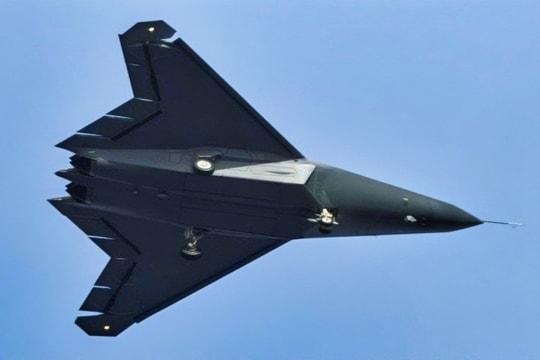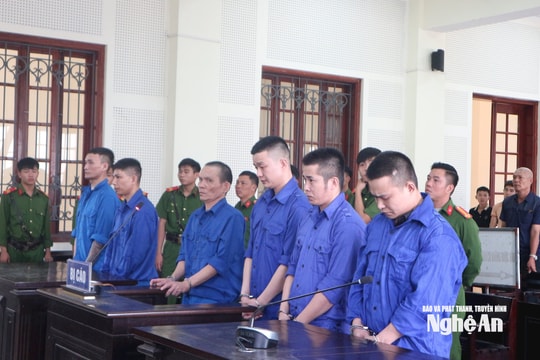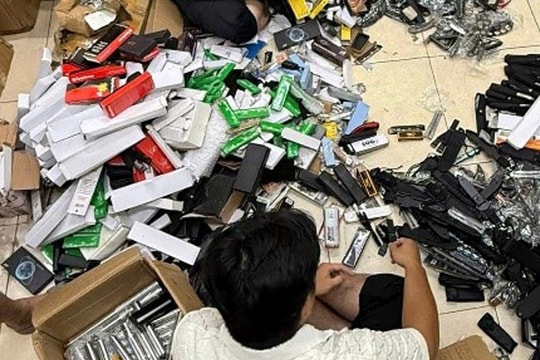Does Vietnam have 'strategic weapons' against Zika and dengue fever?
The answer is yes. However, this “weapon” is still in the testing phase at Tri Nguyen Island in the Nha Trang sea area, Khanh Hoa province.
 Project collaborators are releasing Wolbachia-infected mosquitoes into the natural environment on Tri Nguyen Island. Project collaborators are releasing Wolbachia-infected mosquitoes into the natural environment on Tri Nguyen Island. |
"Using poison to attack poison"
While preventive health officials day and night call on people to eradicate mosquitoes by all means, especially larvae, to reduce the number of people infected with dengue fever, a group of experts released mosquitoes on Tri Nguyen Island to "eliminate dengue fever".
It turns out that this is a way of "fighting poison with poison" by using the Aedes aegypti mosquito, which is the intermediate host of the Dengue virus that causes dengue fever, to eliminate the ability to transmit the disease of this mosquito that can never be completely eliminated.
To do this, experts infected Aedes mosquitoes with Wolbachia, a naturally occurring bacteria that inhibits the growth of the Dengue virus that causes dengue fever, and then released them on Tri Nguyen Island.
 Project collaborators are releasing Wolbachia-infected mosquitoes into the natural environment on Tri Nguyen Island. Project collaborators are releasing Wolbachia-infected mosquitoes into the natural environment on Tri Nguyen Island. |
If a female Aedes mosquito infected with Wolbachia mates with a male Aedes mosquito on an island, all of the offspring will be infected with Wolbachia. If a male Aedes mosquito infected with Wolbachia mates with a female Aedes mosquito on an island, all of the eggs they lay will not hatch into larvae. If both the male and female Aedes mosquitos are infected with Wolbachia, all of their offspring will be infected.
In other words, when experts released Wolbachia-infected mosquitoes onto Tri Nguyen Island, after a period of time, the natural mosquito population on the island was infected. As a result, the mosquitoes on the island were no longer able to transmit the Dengue virus that causes dengue fever.
According to Dr. Nguyen Binh Nguyen - Field Coordinator of the Project "Towards Eliminating Dengue Fever in Vietnam", one of the experts who released Aedes mosquitoes on Tri Nguyen Island, the release of mosquitoes was carried out from April 2013 (phase 1) and May 2014. Data shows that in 2014 and 2015, no resident on Tri Nguyen Island contracted dengue fever, while before 2013, the number of dengue fever cases on this island was quite high.
“Weapon” against Zika
In May 2016, the scientific journal Cell Host & Microbe published research results confirming that the natural bacteria Wolbachia has the ability to reduce the number of Zika viruses in the body of Aedes aegypti mosquitoes.
 A corner of Tri Nguyen Island, the island used to test "strategic weapons" against dengue fever and Zika. A corner of Tri Nguyen Island, the island used to test "strategic weapons" against dengue fever and Zika. |
According to the author of the article, Dr. Luciano Moreira - Head of the project to eliminate dengue fever in Brazil (similar to the project team on Tri Nguyen island), after the tests showed a significant reduction in the number of Zika virus in the saliva of Wolbachia-infected mosquitoes. "This result proves that Wolbachia has great potential in preventing the spread of Zika virus in the field" - Dr. Luciano Moreira wrote.
In July 2016, another study on the connection between Wolbachia and Zika virus was published in the journal Scientific Reports. According to scientists from the University of Wisconsin-Madison and the University of Antioquia, the authors of the study, mosquitoes carrying Wolbachia bacteria were less likely to be infected with Zika virus after being fed blood containing the virus, and if infected, they could not transmit Zika virus through their saliva.
 Tri Nguyen Island residents unanimously participated in testing "strategic weapons". Tri Nguyen Island residents unanimously participated in testing "strategic weapons". |
Although the method of "fighting poison with poison" by using mosquitoes infected with Wolbachia bacteria is only aimed at eliminating dengue fever caused by the Dengue virus, there is increasing evidence from the scientific community that this is also a "weapon" against the Zika virus that is causing headaches around the world and worries people.
When is the “weapon” officially used?
In the context of the world "living with dengue fever" (a disease circulating in more than 100 countries and territories with nearly 400 million cases annually) because there is no specific medicine or vaccine to prevent it, the Zika epidemic has broken out again. The virus is believed to cause microcephaly in fetuses and has now been recorded in 73 countries and territories, according to the World Health Organization.
 The Aedes aegypti mosquito, which is the vector that transmits dengue fever and Zika, has now become a "strategic weapon" thanks to Wolbachia bacteria, promising effective and cheap treatment in the long-standing war between humans and mosquitoes. The Aedes aegypti mosquito, which is the vector that transmits dengue fever and Zika, has now become a "strategic weapon" thanks to Wolbachia bacteria, promising effective and cheap treatment in the long-standing war between humans and mosquitoes. |
In Vietnam, to date, more than 45,000 cases of dengue fever have been recorded, according to data from the Department of Preventive Medicine. Regarding the Zika epidemic, up to this point, the Department of Preventive Medicine has recorded 23 cases of Vietnamese people infected with the Zika virus, of which 17 cases are in Ho Chi Minh City, 4 other cases were discovered in Nha Trang, Phu Yen, Binh Duong and Long An (a 4-year-old child, discovered on October 20).
Faced with this situation, on October 17, the Ministry of Health raised the alert level for the Zika virus epidemic. On October 20, the Ministry of Health continued to issue a Directive on organizing the eradication of larvae and mosquitoes and implementing the prevention of diseases caused by Zika virus and dengue fever nationwide. Although the "disease situation" related to the Dengue and Zika virus duo is making the community worried, the "weapon" tested on Tri Nguyen island has not been used yet?
 International and Vietnamese experts participated in project research. International and Vietnamese experts participated in project research. |
Answering this question, Dr. Nguyen Binh Nguyen - Field Coordinator of the Project "Towards Eliminating Dengue Fever in Vietnam", said that it is expected that after 2017, the "weapon" will be able to be widely replicated, meaning it will be truly "used on the battlefield". The reason, according to Dr. Nguyen, is that although the effectiveness of eliminating dengue fever has been clearly seen, and the ability to eliminate Zika is increasingly evident, experts need more time to more comprehensively assess the possible risks. "Although up to this point, a council of leading experts in the world and in Vietnam has concluded that this is a safe method for humans, animals and the environment" - Dr. Nguyen added.
Once again, to the question of whether Vietnam has “strategic weapons” to fight Zika and dengue fever, the answer is yes, but it cannot be brought to the “battlefield”, at least from now until the end of 2017.
 Wolbachia bacteria (green) inside Aedes aegypti mosquito eggs (magnified image). Wolbachia bacteria (green) inside Aedes aegypti mosquito eggs (magnified image). |
| The Dengue Elimination Program is a non-profit international research collaboration led by Monash University, Australia. The program is supported by governments and donors including the National Institutes of Health as part of the Bill and Melinda Gates Foundation's "Grand Challenges in Global Health" program, the Wellcome Trust, the Tahija Foundation and the Gillespie Family Foundation. The program is being implemented in 5 countries: Australia, Brazil, Colombia, Indonesia and Vietnam. In Vietnam, the research team of the National Institute of Hygiene and Epidemiology has cooperated with the Nha Trang Pasteur Institute, the Khanh Hoa Provincial Department of Health and scientists from Monash University (Australia) to start researching Wolbachia bacteria since 2006 within the framework of the project "Towards Eliminating Dengue Fever in Vietnam". |
According to Toquoc








